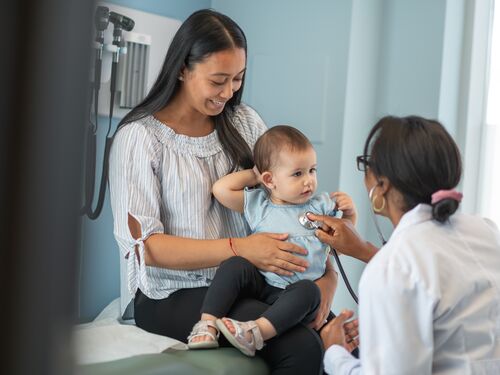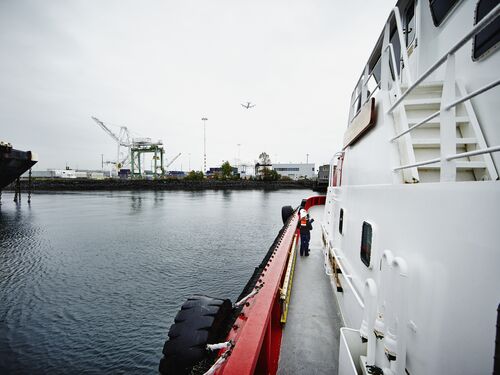Gulf Research Program Announces Early-Career Research Fellows in Offshore Energy Safety and Education Research
News Release
Last update January 11, 2023
WASHINGTON — The Gulf Research Program (GRP) of the National Academies of Sciences, Engineering, and Medicine announced today its 2022-2024 cohorts of Early-Career Research Fellows in the Offshore Energy Safety and Education Research tracks.
Five of the nine new fellows will join the Offshore Energy Safety cohort, focusing on contributing to the understanding, management, and reduction of systemic risk in offshore energy activities. The other four fellows will join the inaugural cohort of the Education Research track, which will focus on contributing to the advancement of K-12 educational equity related to science and environmental literacy by considering the impact of recent disasters on educational opportunities for students in vulnerable Gulf Coast or Alaskan communities.
“These exceptional individuals are working hard to pursue new research, technical capabilities, and approaches that address some of the greatest challenges facing the Gulf and Alaska regions today,” said Karena Mary Mothershed, senior program manager for the Gulf Research Program’s Board on Gulf Education and Engagement. “We are incredibly excited to announce these new Early-Career Research Fellows, and to continue supporting them as they make lasting impacts.”
The Gulf Research Program’s Early-Career Research Fellowship helps researchers during the critical pre-tenure phase of their careers. Fellows receive a $76,000 financial award along with mentoring support to provide them with independence, flexibility, and a built-in support network as they take risks on untested research ideas, pursue unique collaborations, and build a network of colleagues.
The 2022-2024 cohort of Offshore Energy Safety Early-Career Research Fellows are:
Liang Du
Du is an assistant professor of electrical and computer engineering at Temple University. His research focuses on electric power grid modernization, energy systems integration, de-centralized and autonomous power architectures, data-driven analytics, and renewable integration.
Harish Sarma Krishnamoorthy
Krishnamoorthy is an assistant professor in the Electrical and Computer Engineering Department at the University of Houston. His research interests relate to high-density power conversion for grid interface of energy systems, machine learning-based methods for improvement in quality and reliability of power electronics, advanced electronics, and control for mission-critical applications.
Sriramya Nair
Nair is an assistant professor in the School of Civil and Environmental Engineering at Cornell University. She is also a Faculty Fellow at the Cornell Atkinson Center for Sustainability and a field member in the Materials Science and Engineering Department. Nair’s research focuses on the development and characterization of sustainable cementitious materials and novel cementing techniques.
Chao Sun
Sun is an associate professor in the Department of Civil and Environmental Engineering at Louisiana State University. Sun’s lab is dedicated to creating multihazard resilient and sustainable critical infrastructure — such as buildings, offshore wind turbines, oil and gas pipelines, bridges, and electric power grids — facing extreme tropical cyclones and aging issues.
James ‘Chris’ Thomas
Thomas is an assistant research professor in the J. Mike Walker ‘66 Department of Mechanical Engineering at Texas A&M University in College Station. His research has focused on combustion; gas dynamics; propellants and energetics; explosions, detonations, and DDT; nanoscale particle synthesis strategies; and power storage and safety.
The 2022-2024 cohort of Education Research Early-Career Research Fellows are:
Rachel Gisewhite
Gisewhite is an assistant professor in the Center for STEM Education at the University of Southern Mississippi. Her research focuses on authentic scientific inquiry experiences that increase scientific literacy and provide K-12 students, preservice teachers, and community members with an understanding of their place in the social and natural world, the recognition of their responsibility for their collective and individual actions, and a charge to act with generosity to remediate or protect that which they are exploring.
Lacey Huffling
Huffling is an associate professor in the College of Education at Georgia Southern. Her research examines the affordances and barriers historically marginalized communities experience in acquiring science and environmental literacy in K-20 educational settings. Most recently, Huffling worked with her team from Georgia Southern to develop and research a teacher professional development program for rural science teachers from watersheds that flowed into the Gulf of Mexico.
Emily Adah Miller
Miller is an assistant professor in the Department of Mathematics, Science, and Social Studies Education at the University of Georgia. Her research interests focus on examining how elementary teachers can build on their own teaching repertoires to deepen culturally and linguistically responsive and social justice-oriented pedagogies, and, through project-based learning contexts, how teachers use teacher-driven adaptations to strengthen opportunities for students to productively engage in science ideas, practices, and discourses.
Miriam Solis
Solis is an assistant professor of community and regional planning at the University of Texas at Austin. Her research focuses on the roles of community economic development and environmental education in advancing environmental justice. She employs participatory methods through research-practice partnerships with nonprofit organizations and government agencies.
To learn more about the Gulf Research Program’s Early-Career Research Fellowships, visit nationalacademies.org/our-work/early-career-research-fellowship.
The National Academies’ Gulf Research Program is an independent, science-based program founded in 2013 as part of legal settlements with the companies involved in the 2010 Deepwater Horizon disaster. It seeks to enhance offshore energy system safety and protect human health and the environment by catalyzing advances in science, practice, and capacity to generate long-term benefits for the Gulf of Mexico region and the nation. The program has $500 million for use over 30 years to fund grants, fellowships, and other activities in the areas of research and development, education and training, and monitoring and synthesis. Visit nationalacademies.org/gulf/gulf-research-program to learn more.
The National Academies of Sciences, Engineering, and Medicine are private, nonprofit institutions that provide independent, objective analysis and advice to the nation to solve complex problems and inform public policy decisions related to science, technology, and medicine. The National Academies operate under an 1863 congressional charter to the National Academy of Sciences, signed by President Lincoln. For more information, visit nationalacademies.org/about.
More like this
Discover
Events
Right Now & Next Up
Stay in the loop with can’t-miss sessions, live events, and activities happening over the next two days.
NAS Building Guided Tours Available!
Participate in a one-hour guided tour of the historic National Academy of Sciences building, highlighting its distinctive architecture, renowned artwork, and the intersection of art, science, and culture.

